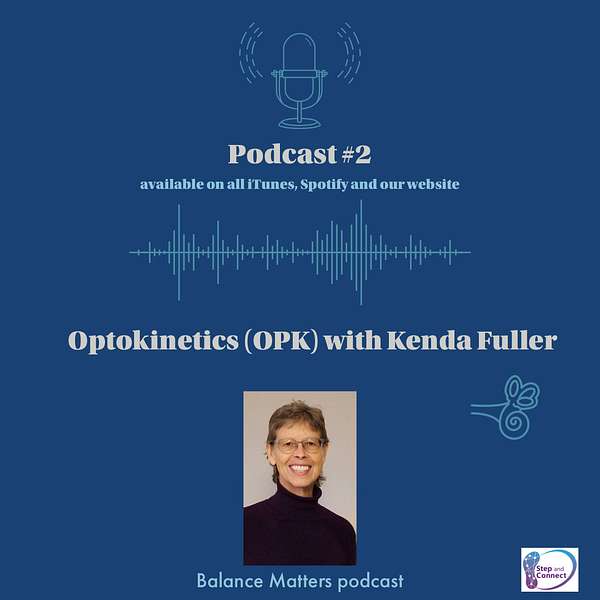
Balance Matters: A neuro physical therapist’s journey to make “Sense” of Balance
Balance Matters: A neuro physical therapist’s journey to make “Sense” of Balance
Optokinetics (OPK) with Kenda Fuller
“I think of optokinetics like I would think of a hammer. A hammer can both drive a nail and pull it out. Optokinetics can push the vestibular system or it can make it challenging to use for your balance.” -Kenda Fuller
Kenda Fuller Bio:
Kenda Fuller, PT, was a pioneer in the practice of vestibular and balance rehabilitation in the 1980’s, certified by the American Board of Physical Therapy Specialists as a neurological specialist in 1990. She is responsible for the neurologic content in Pathology: Implications for Physical Therapists, Elsevier. She contributed to Umphred’s Neurological Rehabilitation by writing chapters on Balance and Vestibular Disorders.
Education has been a strong focus of her career as affiliate faculty at both University of Colorado and Regis University. She has provided extensive continuing education on balance dysfunction throughout the US. Invitations to give international lectures were associated with NeuroCom International, Inc which gave her access to interact with medical practitioners throughout the world. She was instrumental in the development of testing and treatment software for the Proprio 5000, used to identify balance impairments and determine functional limitations. She created the Vestibular and Balance exercise program for Physiotools (https://www.physiotools.com), an electronic exercise product used worldwide.
As co-owner of South Valley Physical Therapy from 2002 to 2020, her independent practice has been focused on the care of patients with complex neurologic and orthopedic conditions causing imbalance. She understands the need to identify the impairments that lead to imbalance and determine best interventions to enhance functional status.
References:
Use of optokinetics based OKCSIB protocol in restoring mobility in primary progressive MS.
Repetitive optokinetic stimulation induces lasting recovery from visual neglect
Study of Optokinetic Stimuli as Treatment for Mal de Debarquement Syndrome.
The Use of Optokinetic Stimulation in Vestibular Rehabilitation